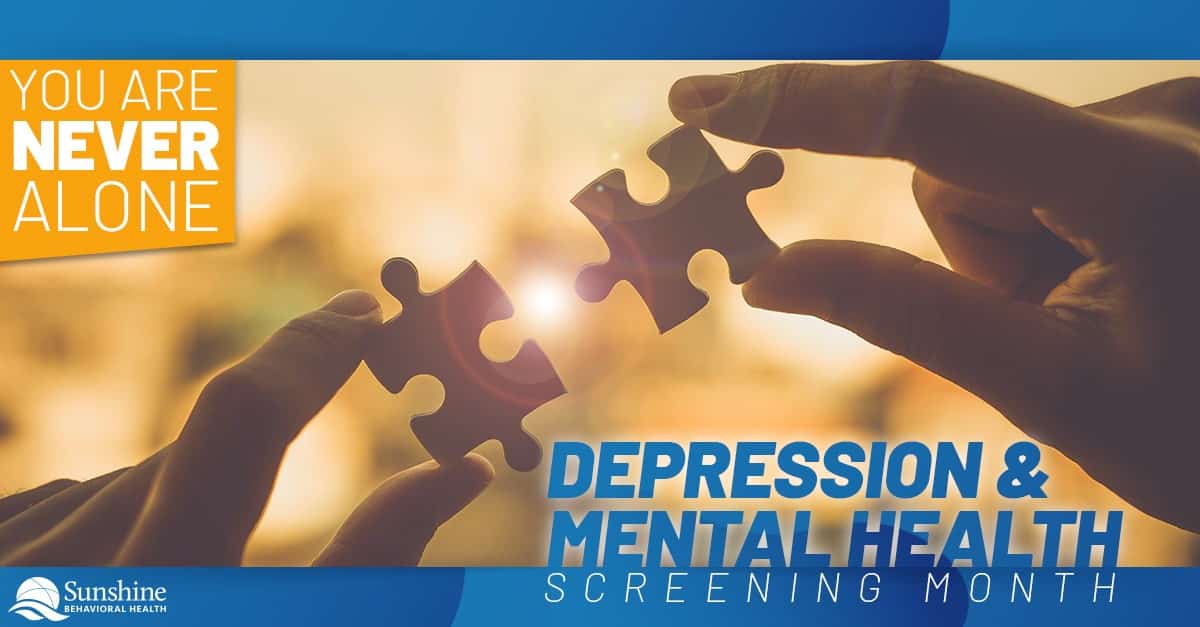
National Depression and Mental Health Screening Month: Assessing and Treating Substance Use Disorders
Addiction is a mental health disorder like addictions and other conditions. Since October is National Depression and Mental Health Screening Month, it might be a good time to explore screening tools that assess problems with drugs and alcohol and approaches that can treat such problems.
What is the CAGE-AID questionnaire?
Professionals often use questionnaires to gauge their clients relationships’ with substances. The CAGE-AID questionnaire is one such tool. It takes its name from the questions it asks clients:
- Did you ever feel the need to CUT down on your drug or alcohol use? (C)
- Do people ANNOY you because they criticize your drug or alcohol use? (A)
- Do you ever feel GUILTY or bad in other ways about your drug or alcohol use? (G)
- Do you ever use drugs or alcohol immediately when you wake up in the morning as an EYE-OPENER to feel better from a hangover or calm yourself? (E)
If people answer yes to one or more of these questions, they’ve tested positive on the test, could have a substance use disorder, and will likely undergo further evaluation.
One of the benefits of CAGE-AID is that it evaluates both drug and alcohol use, not one or the other. In addition to evaluating illegal drugs, this screening test also encourages people to consider any prescription medications they’ve used in nonprescribed manners.
Substance use disorders are mental health disorders
Questions in the questionnaire also illustrate how screening for substance use disorders is also screening for mental health disorders.
A few questions ask people if they want to reduce their substance use or if they use substances to calm themselves. The questions might be trying to understand people’s motivations. They could be asking why people want to use substances or determine if they’re eager to stop using them.
Other questions more directly address people’s perspectives about their substance use. They inquire if people have ever felt guilty for using drugs or alcohol or if others have annoyed them by talking about this use.
The questions illustrate that people’s behaviors are closely related to their thoughts and feelings. That also seems to be the philosophy behind cognitive behavioral therapy (CBT), a type of therapy that is commonly used to treat substance use disorder, depression, and other conditions.
Cognitive behavioral therapy (CBT) helps people replace negative or false thoughts with more positive beliefs. Mental conditions and other factors can contribute to addiction, so CBT aims to help people
- Identify challenges.
- Find ways to solve problems.
- Develop strategies to prevent relapsing.
Screening and treating substance use disorders and addictions means spotting potential problems, addressing them, and developing strategies for change. Assistance is available and can change lives.
Sources
hiv.uw.edu – CAGE-AID Questionnaire
sunshinebehavioralhealth.com – Cognitive Behavioral Therapy for Substance Abuse
A Message From Our CEO
Medical disclaimer:
Sunshine Behavioral Health strives to help people who are facing substance abuse, addiction, mental health disorders, or a combination of these conditions. It does this by providing compassionate care and evidence-based content that addresses health, treatment, and recovery.
Licensed medical professionals review material we publish on our site. The material is not a substitute for qualified medical diagnoses, treatment, or advice. It should not be used to replace the suggestions of your personal physician or other health care professionals.





